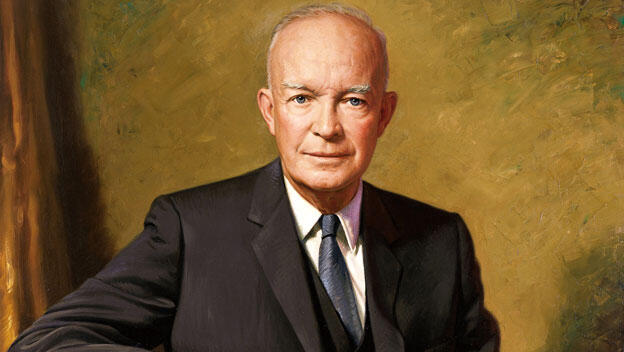On February 20, 1957, U.S. President Dwight D. Eisenhower appeared before his nation to discuss the on-going crisis in the Middle East and to win popular support for the Eisenhower Doctrine, a congressional bill that would authorize the deployment of U.S. military forces to any Middle East nation seeking aid against Communist aggression. Four months earlier, the latest crisis in the troubled region began when Israeli, British, and French forces invaded Egypt and occupied the Suez Canal Zone in retaliation for Egyptian leader Gamal Abdel Nasser's nationalization of the waterway. The United Nations, the U.S., and the U.S.S.R. all expressed outrage at the hostilities, and Britain, France, and Israel agreed to withdraw from the Suez as a U.N. emergency force was sent to the area. Although the superpowers presented a facade of unity during the Suez Canal Crisis, both were primarily motivated by their ambition to gain influence with Arab states in the Middle East.
